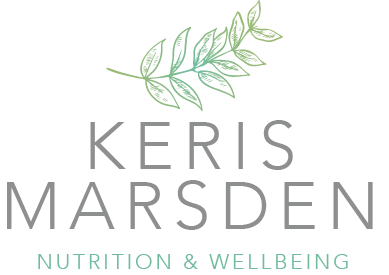What to eat and what to avoid for good gut health
The food you eat is a game changer when it comes to optimising gut health.
There are two ways nutrition support your digestive health:
1) The food you eat influences your microbiome
Our gastrointestinal tract is populated with trillions of organisms including bacteria and yeast (known as your microbiome) which are responsible for digesting food, supporting your immune system and making nutrients such as B vitamins and vitamin K.
Often with digestive conditions there is an issue with the balance or diversity of our gut bacteria which can tip the body towards ill health. This is called dysbiosis.
Diet, infections, lifestyle and medications are just a few things that can alter your microbiome and create an imbalance.
2) Nutrition is vital to maintain a healthy gut lining
Your digestive system runs from your mouth to your colon and for this reason it’s the outside world inside your body.
You are constantly exposed to all sorts of bugs and toxins and these find their way into the body via food, water or we inhale them.
The cells that line your gut ensure these don't enter the bloodstream.
Your gut lining forms a protective barrier and your body needs lots of nutrients to maintain it including protein, vitamin A, zinc and vitamin D.
Your gut bacteria also act as guardians and protect this barrier from damage by infections.
What to eat to support digestion
Wholefood first
Foods in its whole state which hasn’t been refined or manufactured is more nutrient dense and contains essential vitamins and minerals that keep your digestive tract healthy.
Food processing decreases many of the nutrients in food and replaces them with man-made ingredients like additives, preservatives, chemical fats, excess sugar and sweeteners that can all have a negative impact on your gut.
A diet that includes any combination of meat, fish, poultry, eggs, dairy, wholegrains, root vegetables, fruits, nuts, seeds and legumes will nourish your gut.
These contains all the essential proteins, healthy fats, vitamins and minerals your digestive system needs to maintain health.
Favour ancestral carbohydrates
Our modern-day diets rely increasingly on processed carbohydrates like shop brought bread, cereals, crackers, rice cakes, crisps and sugar.
These contain almost double the amount of carbohydrates per serving compared to more unrefined sources like potatoes, beetroot, parsnips, sweet potatoes, carrots, quinoa and lentils.
Studies comparing ancestral diets to modern Westernised diets have identified that the greater carbohydrate density of the foods eaten the more likely the diet will feed bacteria that are associated with inflammation and disease processes.
Wholefood carbohydrates from fruits and vegetables are still contained within a fibrous plant matrix which means they're broken down slowly during digestion compared to flour based products which are digested quickly. These plant fibres also feed beneficial bacteria.
Protein: the building blocks of your gut barrier
The main component of the tissues that line the gut are protein. Your gut also secretes a protective mucus which is made of protein.
Ensuring you consume enough protein from either animal or plant sources is important to ensure your body has the building blocks to keep the barrier strong.
The building blocks are known as amino acids and following are particularly helpful for gut repair:
Glutamine: found in fish, seafood, dairy, eggs, soy, cabbage, meat
Proline: found in egg whites, gelatine, soy, dairy, beef, mushrooms, sunflower seeds, seaweed
Glycine: found in organ meats, meat, fish, seafood, dairy, eggs, soy, nuts, seeds, beans
Feed your microbiome with fibre
Fibre is the main source of energy for your gut bacteria and it helps to maintain a diverse population.
Gut bacteria also convert fibre into something called short chain fatty acids and these provide a source of energy to the cells in your colon and help reduce your risk of inflammatory diseases, type 2 diabetes, obesity and heart disease.
Balancing fibre with bloating
If you find some fibre rich foods such as cabbage, cauliflower or beans difficult to digest there are a few things you can do to help reduce the bloating:
Favour soups, stews and smoothies when eating high fibre foods as blending makes them easier on your gut
Soak dried beans before cooking and cook them slowly (use a pressure cooker or slow cooker)
Choose vegetables that are less fermentable like bok choy, kale, watercress and courgettes.
Root vegetables (peeled and well cooked) like carrots, parsnips, celeriac and butternut squash are nutritious carb sources which are easier to digest
Choose ripe or cooked/stewed fruit which is easier to digest
Try some fermented foods
Food fermentation is an age-old technique to preserve foods.
It is used to produce foods such as wine, cheese and sauerkraut.
These foods are rich in beneficial probiotic bacteria which can help increase your own gut friendly bacteria and maintain a healthy balance.
Fermented food include:
Sauerkraut, kimchi or fermented carrots
Tofu, natto and tempeh (soy products)
Cottage cheese and live yoghurt
Water or coconut water kefir
Important: fermented foods can generate more gas production so it’s important to add small amounts into your diet to begin with. Start with ½-1 teaspoon and build up gradually to a few tablespoons over a few weeks.
If you’re already prone to having bloating and flatulence you may want to try increasing polyphenol rich foods (below) instead as these are less likely to cause excess gas.
Polyphenol rich foods
Foods that are rich in a type of antioxidant known as polyphenols can also increase your beneficial bacteria.
These include
Cacao nibs, cocoa, and dark chocolate. Look for options with at least 70% cocoa solids.
Green tea. It contains epigallocatechin gallate (EGCG), which is a powerful antioxidant.
Coffee. If it doesn’t cause you any digestive issues like reflux then coffee is a good source of antioxidants.
Herbs and spices. Turmeric, oregano, cinnamon, thyme, etc: They all make food healthier and more flavourful at the same time.
Dark green, leafy vegetables. Watercress, kale, rocket, chard, and spinach
What to avoid
Excessive alcohol
Excessive alcohol intake can damage the gut lining and deplete the body of essential nutrients it needs to repair the gut lining like zinc, B vitamins, iron and zinc.
This can also lead to activation of the immune system and trigger inflammation.
Too much alcohol can change the balance of gut bacteria and induce a growth of certain bacteria and yeast that do not support a healthy GI tract.
If you’re experiencing ongoing digestive issues it’s helpful to eliminate alcohol for a period of time to see if your symptoms improve.
Excess refined sugar and fructose
High and chronic intake of sugar can feed bacteria associated with inflammation and disease. This means sweets, crisps, cakes, biscuits and sugary drinks should ideally be an occasional treat.
These foods also disrupt blood sugar regulation studies have shown that people who have poor blood sugar regulation, such as those with type 2 diabetes and obesity, have dysbiosis and lower gut bacterial diversity.
Whilst a little fructose from fruit is fine, studies have shown that high intake of fructose syrups from processed foods and sweet drinks may contribute to digestive issues by promoting the increase of levels of bacteria that cause inflammation.
Food additives and sweeteners
Studies are still in early stages regarding the impact of food additives and sweeteners but some evidence suggests they have the ability to alter the gut microbiome and influence health.
Food additives are used to improve the quality and taste and increase the shelf life of foods.
Clinical research has observed that some like carboxymethylcellulose and Polysorbate 80 (P80) alters the intestinal environment and shift the microbiome towards the growth of more inflammatory bacteria.
These tend to be found in processed foods which are best to limit, however, they’re sometimes found in healthy produce like yoghurts or beverages so it’s helpful to check
A recent study on sweeteners identified that aspartame, saccharin and stevia can change the microbiome but the researchers couldn’t draw conclusions about whether this was a positive or negative adaptation.

